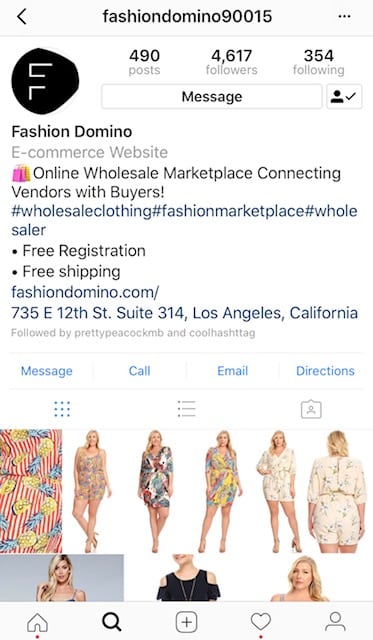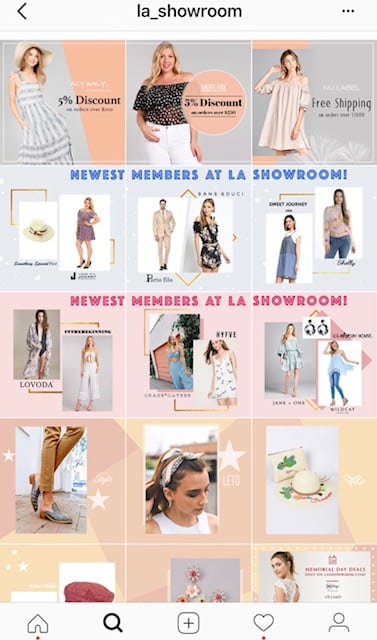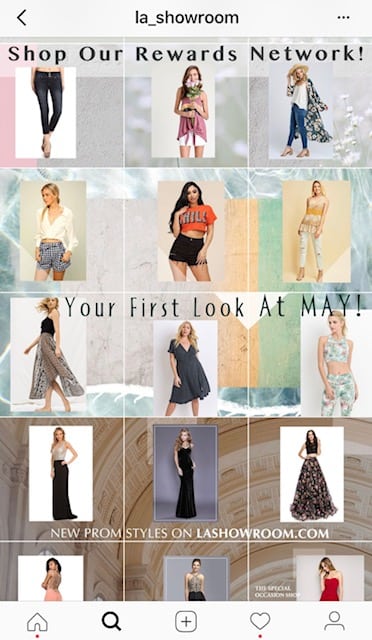Instagram is a critical social network for fashion and lifestyle merchants, for two reasons.
First is brand representation. Branding is how consumers perceive a company. Instagram is mainly visual — images and videos. Plus it offers text capability and hashtags for categorizing. Instagram’s tools, in other words, can showcase a business and enhance its branding.
Second is engagement. Instagram produces more engagement than other platforms. Instagram users are 58 times more engaged in brands’ activities than Facebook users and 120 times more than Twitter users, according to Forrester Research.
Thus companies should take Instagram planning seriously. As with every digital channel, Instagram requires a robust strategy, tactics, and execution to produce positive returns, especially for smaller companies with limited resources.
Instagram Planning
Profile. An Instagram profile is the “Instagram face” of your business. Create a profile that gets clicks. With only 150 characters available, make it clear to potential customers what you do, who you do it for, and why people should be interested.
You can add hashtags to your profile description. Targeted hashtags will help your future customers find and follow you or your company. Pick profile hashtags precisely. Use specific hashtags versus general ones.
Also, Instagram allows just one link in a profile. Think this through. It’s best to link to the part of your website that offers something valuable, memorable, and long-lasting — preferably informational. If you don’t have informational pages on your site, link to a compelling promotion.

On your profile, make it clear to potential customers what you do, who you do it for, and why people should be interested.
Goals. Have a clear understanding of your general business goals and separate goals for Instagram. Each Instagram goal should have “topics,” categories that rotate to keep your followers engaged.
For example, one of your goals could be to inform Instagram users about your products and offers. So post your new arrivals. Or perhaps you want to educate customers and prospects. Thus, post how a particular dress will improve your customer’s life — the dress is premium quality at a competitive price, and it will make your customer feel good and look thinner.
Branding. Again, you should be able to summarize your brand’s mission in one sentence and produce content that consumers will remember. Be consistent in templates, colors, fonts, posting times, and content topics.

Be consistent in templates and colors, such as the examples above and below from LA Showroom.
—

LA Showroom’s template is consistent across all posts.
Content. According to Hootsuite, leading brands post on Instagram 4.9 times per week. In my view, however, the right frequency 2-3 times per day with focused goals.
Producing the right content is time-consuming. Create your content in chunks and map it out to use over a week or a month.

Create a series of content and then use it over time — a week or a month.
Create appealing captions at the same time and make the captions resemble “mini-posts” with the most important words at the front. Think of your caption as a short elevator speech for each piece of content.
Use an automated scheduler to prepare once and then the posts will appear automatically. After the posts appear, engage with your followers and with users who like and comment.
Followers and community. The critical part of an Instagram marketing strategy is enticing the targeted audience to follow you. But make sure the followers are relevant and interested in your brand. Companies often think that having a large number of followers will make their company look successful. That is not necessarily accurate.
Irrelevant followers will waste money during Facebook ad campaigns because the ads will show to uninterested consumers.
You can spot a poor Instagram strategy by looking at the number of likes and comments. Uninterested followers will produce little engagement.
Hashtags. Hashtags can be “branded” — related strictly to your company or community. Hashtags increase your content’s reach. Time spent on researching and monitoring hashtags will pay off, leading to a list of helpful hashtags for each goal and topic.
Instagram Growth
The best way to grow your community on Instagram is to take a slower, organic approach. The number of followers does not matter, but the quality does.
Use hashtags. Hashtags for Instagram are like keywords for search engine optimization. Experiment with medium-tail, relevant hashtags and then, based on analytics, stick with the hashtags that work the best for each goal.
Collaborate with influencers. Collaborating with influencers — people with established targeted audiences — is important because their followers trust their opinions. However, when picking the influencers, make sure that they are active and your business arrangement includes more than one post. Also, make sure your company’s link will be in the influencer’s profile during the promotion.
Love and attention. Showing attention to your targeted followers and other prospects is a must. If someone liked or commented on your content, return the attention: like and comment five times more.



